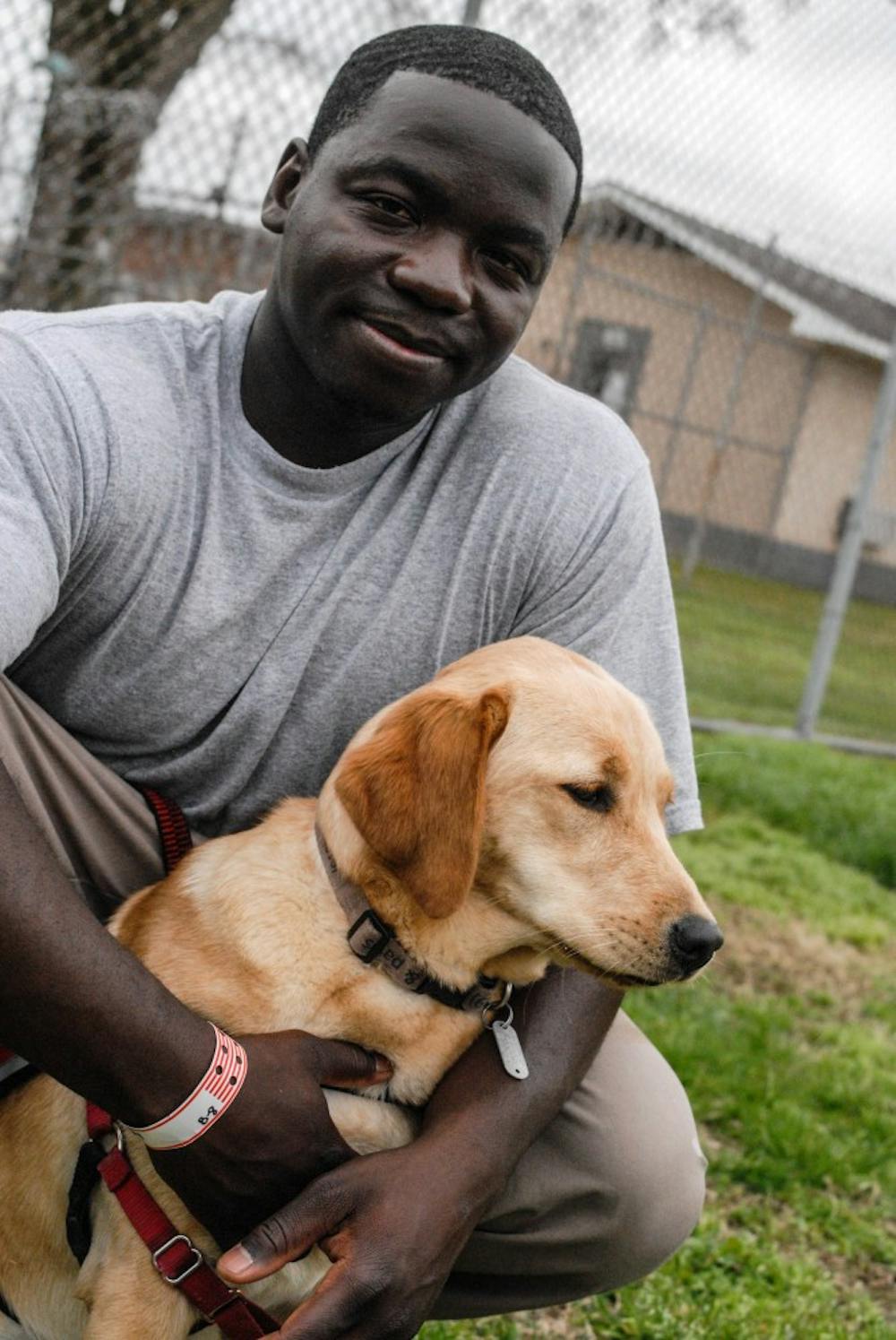Everyone knows that a dog is a man's best friend. Local nonprofit At Both Ends of the Leash (ABEL) applies this saying by partnering with local correctional facilities to help train service dogs.
ABEL is a prison partnership program with Eyes Ears Nose & Paws (EENP), a nonprofit organization in Carrboro. EENP trains mobility assistance dogs for people with physical disabilities and medical alert dogs for people with any medical condition that has a scent component.
The nonprofit trainers travel to Warren Correctional Institution and Caswell Correctional Center each week to have the inmates train their dogs.
The program launched in December 2014 after the organization had difficulty finding volunteers who could raise the dogs from puppyhood to adulthood. The dogs enter ABEL at six months old and are ready to graduate as service dogs when they are 18 to 24 months old.
Program Director Deb Cunningham said that since the program has started, they have been able to graduate more service dogs in less time.
“In the six years prior to ABEL, we graduated 11 services dogs," she said. "And since ABEL has been a part of EENP, we have graduated 12 service dogs.”
She said the program does team building and personal development exercises because of its philosophy: "If the people doing the training are doing well, then the training will get done well."
“I think all of (the inmates) would say it’s more work than they thought it was, and that it’s even better work than they thought it would be,” she said.
Alden Rainey was once an inmate trainer with ABEL, but in December, he became the head dog trainer at EENP after being released from prison.




